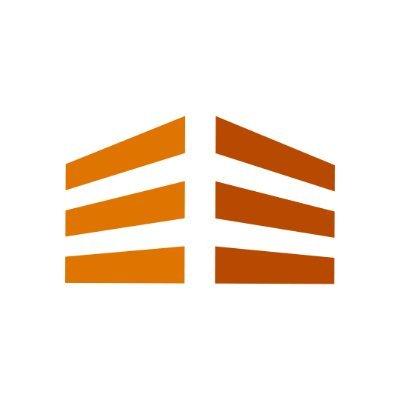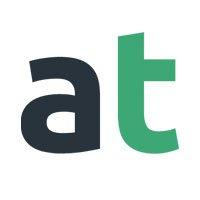Invest in commercial real estate projects
Invest in farmland
Investments
$25,000
Minimum investment amounts on CrowdStreet start at $25,000, with the exact threshold varying by individual project.
Investments
$15,000
The minimum investment on AcreTrader varies by listing, generally starting at $15,000, with some past deals ranging from $3,000 to $100,000. This range is determined by factors such as the size of the offering and the price per acre.
Moderate Risk
3/5
Investing via CrowdStreet entails typical real estate risks such as market fluctuations and property-specific issues, with no guarantee of returns and potential for capital loss.
Moderate Risk
3/5
Investing in AcreTrader involves risks like casualty, condemnation, and eminent domain, common to real estate investments.
Minimum Liquidity
1/5
CrowdStreet investments are generally illiquid, with capital committed for several years until a potential liquidity event, such as a property sale or refinancing, without a secondary market for early exit.
Minimum Liquidity
1/5
AcreTrader investments are considered illiquid, meaning investors should be prepared to hold their investments for the specified duration. While it may be possible to sell shares in a private transaction after this period, there is no established market for them, making resale uncertain.
Receive new reviews from Fintorial
High Return
17.9 %
CrowdStreet has a historical 17.9% Realized IRR and a typical 3.1-year hold period for investments, with returns varying based on equity shares, debt interest, or hybrid terms, and property sales.
High Return
9.4-30.3 %
The returns from investing in AcreTrader vary, with historical examples showing realized internal rates of return (IRR) ranging from 9.4% to 30.3% over holding periods between 1.7 and 4.2 years. These variations highlight the potential for both moderate and significant returns, depending on the specific investment and market conditions.
Long-term Investment
3-10 years
CrowdStreet investments typically have a hold period of 3.1 years on average, with some ranging from 3-5 years and others up to 10 years, reflecting a long-term investment horizon.
Long-term Investment
3-10 years
AcreTrader investments target hold periods of 3 to 10 years, though this can vary based on market conditions and sale opportunities. Properties may sell earlier or extend beyond the target period, depending on whether favorable buying offers arise or if market conditions dictate a longer hold.
Who can invest
United States
Individuals must be accredited U.S. residents with valid identification to invest on CrowdStreet, while entities need U.S. accreditation, taxation, and verification, subject to CrowdStreet's approval.
Who can invest
United States
Investing on the AcreTrader platform is limited to accredited investors, as defined by SEC regulations. Non-U.S. citizens can invest if they are legal residents of the United States.
Moderate Volatility
3/5
Assets on CrowdStreet may experience volatility due to economic shifts, interest rate changes, and local market trends, affecting property values and investment returns.
Moderate Volatility
3/5
Farmland assets on AcreTrader typically exhibit lower volatility compared to stocks and bonds, offering a more stable investment option due to the steady demand for agricultural products and the land's intrinsic value.
Regulation and audits
SEC Regulated
CrowdStreet's offerings are regulated by the SEC and subject to regular audits for compliance, ensuring adherence to legal standards for securities and real estate investments. However, details on specific audits and regulations are not publicly disclosed.
Regulation and audits
SEC Regulated
AcreTrader is regulated by the Securities Exchange Act of 1934, SEC rules, FINRA rules, and state laws, reflecting its commitment to transparency and investor protection. As a registered Broker-Dealer, it must adhere to strict financial standards, undergo regular audits, and comply with ethical practices to maintain its standing and ensure the security of its investors' assets.
Insurance
Yes
CrowdStreet's properties are typically insured against physical damage, but this does not cover market risks or guarantee full property value protection. Investors should note that insurance mitigates, but doesn't eliminate, all investment risks.
Insurance
Yes
AcreTrader does not explicitly mention specific insurance coverage for investments on its platform. Generally, real estate investments, including farmland, are insured against risks like natural disasters and fire to protect investment value.
Payouts
Dividends
CrowdStreet investors may receive distributions, typically on a quarterly basis, based on the cash flow and profitability of their investments, but these are not guaranteed and depend on the specifics of each project.
Payouts
Dividends
AcreTrader may distribute net cash from annual income to investors after operating expenses, typically once a year in December. These distributions, based on pro rata ownership, are not guaranteed. If distributed, funds go to the investor's AcreTrader wallet or, for SDIRA or IRA accounts, to the custodian.
Withdrawals
Investors on CrowdStreet typically receive their money back after a liquidity event like a property sale, based on the timeline of the specific project's business plan. Real estate investments are illiquid, so funds cannot be withdrawn on demand.
Withdrawals
Investors can typically get their money back when the property they've invested in is sold at the end of its expected hold period, which may range from 3 to 10 years.
Extra Fees
Yes
CrowdStreet investments may include sponsor-determined fees such as acquisition, asset management, and property management fees, along with performance-based carried interest.
Extra Fees
Yes
AcreTrader charges investors initial closing costs around 2% of the offering value and an annual 0.75% servicing fee of the land's value for management. The primary revenue comes from a 5% commission on the farm's sale, charged to the seller. There are no “carried interest fees.” Fee structures vary by deal, so reviewing offering documents is recommended for specifics.
Taxes
Tax Form
CrowdStreet issues Form K-1 or other relevant tax documents to investors for annual tax reporting, with the advice to consult a tax advisor for proper tax treatment of investments.
Taxes
Tax Form
AcreTrader aims to provide K-1 tax forms electronically by early March, although delays can occur due to external reporting needs. Tax treatment varies: gains on land sold within a year are taxed at ordinary income rates, while longer holdings are taxed at capital gains rates. Depreciation on buildings or equipment may affect taxes.

